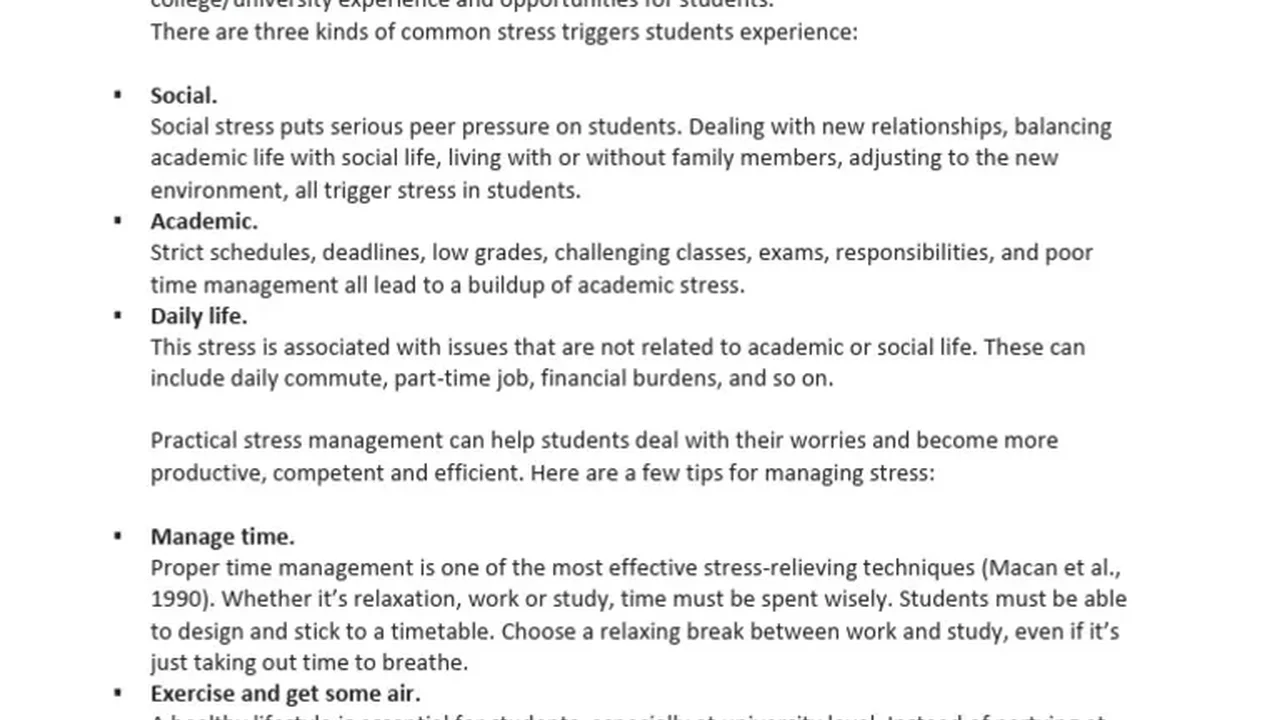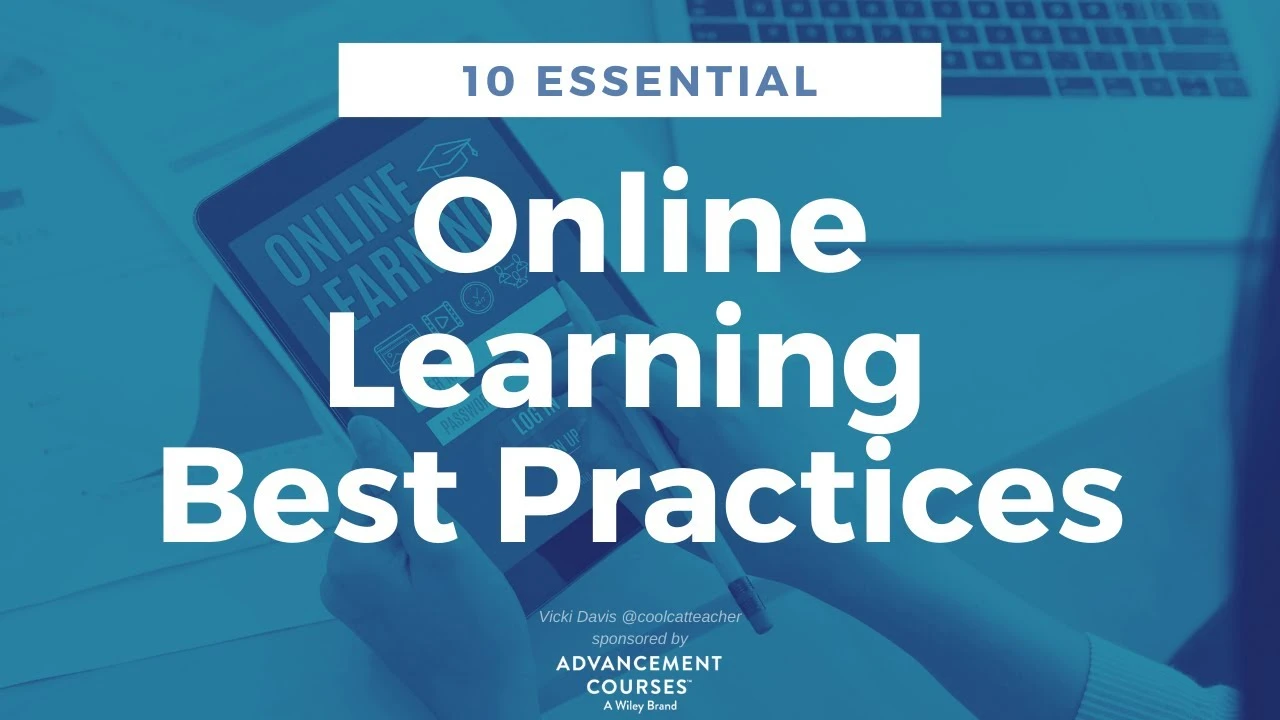Effective Strategies for Managing Academic Stress
Cope with academic pressures using effective strategies for managing stress. Maintain your well-being while pursuing your studies.

Cope with academic pressures using effective strategies for managing stress. Maintain your well-being while pursuing your studies.
Effective Strategies for Managing Academic Stress
Understanding Academic Stress What It Is and Why It Matters
Academic stress is a pervasive issue among students worldwide, from high school to postgraduate studies. It's not just about feeling overwhelmed; it's a complex interplay of psychological and physiological responses to academic demands. This stress can stem from various sources: the pressure to perform well, heavy workloads, tight deadlines, competitive environments, financial burdens, and even the fear of failure. While a certain level of stress can be a motivator, pushing us to achieve our best, chronic or excessive academic stress can have detrimental effects on mental health, physical well-being, and academic performance itself. It can lead to burnout, anxiety, depression, sleep disturbances, and a diminished capacity to learn and retain information. Recognizing the signs of academic stress – such as persistent fatigue, irritability, difficulty concentrating, changes in appetite or sleep patterns, and withdrawal from social activities – is the first crucial step towards managing it effectively. Understanding that academic stress is a legitimate and common experience, rather than a personal failing, helps in approaching it with self-compassion and seeking appropriate strategies.Proactive Planning and Time Management for Academic Success
One of the most effective ways to combat academic stress is through proactive planning and robust time management. The feeling of being overwhelmed often arises from a lack of control over one's schedule and responsibilities. Implementing a structured approach can significantly alleviate this. Start by creating a comprehensive academic calendar for the entire semester, noting down all major assignments, exams, and project deadlines. Break down large tasks into smaller, manageable steps. For instance, a research paper can be divided into topic selection, outline creation, research, first draft, editing, and final submission. This makes the task less daunting and provides a clear roadmap. Utilize digital tools or physical planners to schedule your study sessions, lectures, and other commitments. The Pomodoro Technique, for example, involves working in focused 25-minute intervals followed by short breaks, which can enhance concentration and prevent burnout. Prioritize tasks using methods like the Eisenhower Matrix (urgent/important, important/not urgent, etc.) to ensure you're dedicating your energy to what truly matters. Avoid procrastination, as it often leads to last-minute cramming and heightened stress levels. By allocating specific times for studying, reviewing, and completing assignments, you create a sense of control and predictability, reducing the anxiety associated with looming deadlines. Remember to also schedule in buffer time for unexpected delays or challenges.Effective Study Techniques and Learning Strategies to Reduce Pressure
Beyond just managing time, the way you study can significantly impact your stress levels. Inefficient study habits can lead to longer hours with less retention, increasing frustration and pressure. Active recall and spaced repetition are two highly effective learning strategies that can reduce study time while improving memory. Instead of passively rereading notes, actively test yourself on the material. Flashcards, self-quizzing, and explaining concepts to others are great ways to practice active recall. Spaced repetition involves reviewing material at increasing intervals over time, which helps solidify information in long-term memory. Consider different learning environments. Some students thrive in quiet libraries, while others prefer a bit of background noise. Experiment to find what works best for you. Group study can be beneficial for discussing complex topics and gaining different perspectives, but ensure the group stays focused. Don't be afraid to ask for help when you're struggling. Utilizing office hours, peer tutoring, or academic support services can clarify difficult concepts and prevent academic setbacks that contribute to stress. Understanding your learning style – whether visual, auditory, or kinesthetic – can also help you tailor your study methods for maximum efficiency and less frustration.Prioritizing Self-Care and Well-being for Sustainable Academic Performance
Academic success is not solely about intellectual prowess; it's deeply intertwined with physical and mental well-being. Neglecting self-care can quickly lead to burnout and exacerbate academic stress. Prioritizing adequate sleep is paramount. Most college students need 7-9 hours of sleep per night. Establish a consistent sleep schedule, even on weekends, and create a relaxing bedtime routine. Avoid caffeine and screens before bed. Nutrition plays a vital role in brain function and mood regulation. Opt for balanced meals rich in fruits, vegetables, whole grains, and lean proteins. Limit processed foods, excessive sugar, and unhealthy fats. Staying hydrated is also crucial. Regular physical activity is a powerful stress reliever. Even 30 minutes of moderate exercise most days of the week can significantly reduce anxiety and improve mood. This could be anything from walking or jogging to yoga or team sports. Mindfulness and meditation practices can help you stay present and manage anxious thoughts. Apps like Calm or Headspace offer guided meditations that can be done in just a few minutes a day. Taking regular breaks during study sessions is also essential to prevent mental fatigue. Step away from your desk, stretch, or do something enjoyable for a few minutes. Remember, self-care isn't a luxury; it's a necessity for sustained academic performance and overall well-being.Building a Support System and Seeking Professional Help for Stress Management
No one should have to navigate academic stress alone. Building a strong support system is crucial. This can include family, friends, mentors, or fellow students who understand your challenges. Don't hesitate to talk about your feelings and experiences. Sometimes, simply verbalizing your stress can make it feel more manageable. Connecting with peers who are going through similar experiences can provide a sense of camaraderie and shared understanding. Universities typically offer a range of support services designed to help students manage stress and mental health challenges. These often include counseling centers, academic advising, and wellness programs. Seeking professional help from a therapist or counselor is a sign of strength, not weakness. They can provide coping strategies, help you identify underlying issues, and offer a safe space to process your emotions. Many universities offer free or low-cost counseling services to students. Don't wait until stress becomes overwhelming; reach out early if you feel you're struggling to cope.Technology and Apps for Stress Reduction and Academic Organization
In today's digital age, numerous apps and technological tools can assist students in managing academic stress and improving organization. These tools can help with everything from time management to mindfulness.Time Management and Productivity Apps
- Todoist: This popular task manager helps you organize your assignments, set deadlines, and prioritize tasks. Its clean interface and cross-device syncing make it easy to keep track of everything. You can create projects for each course, add subtasks, and even set recurring tasks for regular study sessions. The free version is robust, while the premium version offers more features like reminders and filters.
- Forest: A unique app that gamifies productivity. When you want to focus, you plant a virtual tree. If you leave the app before your set time, the tree dies. This encourages users to stay focused and avoid distractions. It's available for both iOS and Android, with a one-time purchase for the full version.
- Trello: A visual collaboration tool that can be adapted for personal academic organization. You can create boards for different courses or projects, and use cards to represent tasks. Move cards through different stages (e.g., 'To Do,' 'Doing,' 'Done'). It's highly customizable and great for visual learners. Trello offers a free tier with basic features, and paid plans for more advanced team collaboration.
- Google Calendar / Outlook Calendar: Essential for scheduling. Integrate your class schedule, study blocks, appointments, and social activities. Setting reminders for deadlines and events can significantly reduce the mental load of remembering everything. Both are free and widely accessible.
Mindfulness and Meditation Apps
- Calm: One of the leading apps for meditation and sleep. It offers guided meditations for stress, anxiety, focus, and sleep, as well as sleep stories and calming music. A subscription is required after a free trial, typically around $70 per year.
- Headspace: Similar to Calm, Headspace provides guided meditations, mindfulness exercises, and sleep aids. It's known for its approachable and friendly interface, making meditation accessible to beginners. Like Calm, it operates on a subscription model, usually around $70 per year after a free trial.
- Insight Timer: This app offers a vast library of free guided meditations (over 100,000), talks, and music tracks from thousands of teachers. It also has a meditation timer for unguided sessions. While it has a premium subscription for offline access and advanced courses, the majority of its content is free, making it a highly cost-effective option.
Note-Taking and Organization Apps
- Evernote: A versatile note-taking app that allows you to capture notes in various formats – text, images, audio, web clippings. You can organize notes into notebooks and tag them for easy retrieval. It's excellent for consolidating information from different sources. Evernote offers a free basic plan and paid plans with more storage and features.
- Notion: More than just a note-taking app, Notion is an all-in-one workspace for notes, tasks, wikis, and databases. Students can use it to manage course materials, track assignments, create study guides, and even plan their entire academic life. It has a generous free tier for personal use, with paid plans for teams.
- Quizlet: While primarily a flashcard app, Quizlet is fantastic for active recall and spaced repetition. You can create your own flashcards or use sets created by others. It also offers various study modes like 'Learn,' 'Write,' and 'Match.' A basic version is free, with Quizlet Plus offering offline access and advanced features for a monthly or annual fee (around $20-$30 per year).
Distraction Blockers
- Freedom: This app and browser extension blocks distracting websites and apps across all your devices. You can create custom blocklists and schedule sessions. It's a paid service, typically around $30 per year, but highly effective for serious focus.
- Cold Turkey: Similar to Freedom, Cold Turkey is a powerful distraction blocker for Windows and Mac. It can block websites, applications, and even the internet entirely for a set period. It offers a free version with basic blocking and a paid 'Pro' version for more advanced features and scheduling.
:max_bytes(150000):strip_icc()/277019-baked-pork-chops-with-cream-of-mushroom-soup-DDMFS-beauty-4x3-BG-7505-5762b731cf30447d9cbbbbbf387beafa.jpg)





